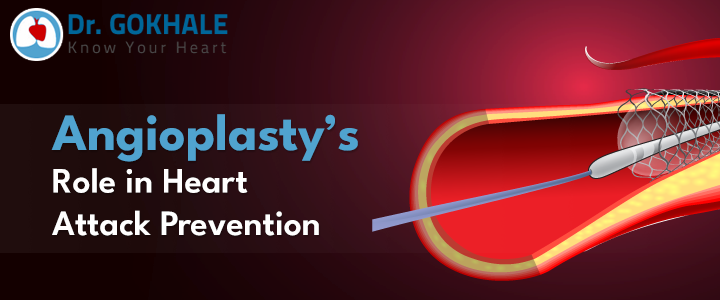When the heart vessels are clogged by fat, cholesterol, or plaque build-up, they tend to narrow down, reducing the blood supply to the heart. In rare cases, they narrow down to an extent where blood supply ceases and blocks the blood flow, leading to chest pain and, in extreme cases, a heart attack. Angioplasty is a surgical procedure performed to unclog the heart’s blood vessels, particularly the arteries.
So, Angioplasty is a surgical procedure used to treat coronary heart diseases. Does it play a role in the prevention of heart attacks? How effective is Angioplasty in guarding the heart against heart attacks in the future? With inputs from Dr. Alla Gopala Krishna Gokhale, the best angioplasty doctor in India, we delve into the different aspects of Angioplasty, answering the most commonly asked questions about angioplasty treatment in Hyderabad. Read on:
Angioplasty – A Simple Yet Effective Surgery Procedure:
Angioplasty is performed by inserting a catheter, a thin, flexible tube, through the wrist or groin of the patient. The tip of the catheter carries a tiny balloon inflated inside the narrowed artery. The balloon pushes the plaques and compresses them against the wall to widen and restore normal blood flow. In a few cases, medicated stents are also placed inside the artery to hold it open to prevent further narrowing.
“Angioplasty is a minimally invasive procedure which gives rapid relief for symptoms such as chest pain and reduced blood flow,” says the best heart transplant surgeon and leading angioplasty doctor in Hyderabad, Dr. Alla Gopala Krishna Gokhale.
Why does low blood pressure occur after Angioplasty?
Fluctuations in blood pressure commonly occur during any heart surgery procedure, and Angioplasty is no different. Medications such as pain relievers, sedatives, and other beneficial drugs administered may contribute to lowering blood pressure. Fluid loss during the procedure may also contribute to a drop in blood pressure, as can stress, which releases certain hormones that can reduce the pressure.
According to a heart transplant surgeon in Hyderabad, Dr. Alla Gopal Krishna Gokhale, in most cases, lower blood pressure after Angioplasty happens due to a combination of the above-discussed factors and underlying cardiovascular conditions. So now lets us get back to the most common question about the angioplasty procedure:
Does Angioplasty prevent heart attacks?
In a few cases, the built-up plaque suddenly ruptures in the artery, causing artery blockage and an acute heart attack. Angioplasty treatment for heart attack can ideally help in these cases by clearing out the plaque and opening the artery before complete blockage occurs.
“When combined with medicated stents, angioplasty can further provide a long-term solution to keep the arteries open for the longest possible time, reducing the risk of recurrent blockages and thus playing a role in preventing heart attacks in the future,” says top heart transplant surgeon Dr. Gokhale who is also one of the best angioplasty doctors in India.
That said, coronary artery diseases are complex conditions with many contributing factors. The reasons for narrowing down the arteries can be diverse, and blockages can also occur at other arteries or locations, leading to heart attacks. While Angioplasty does help in reducing the risk of heart attack, it is not a complete solution. Patients must include healthy lifestyle changes, continue prescribed medications, and seek help from qualified heart specialists to reduce the overall risk of heart attack.














